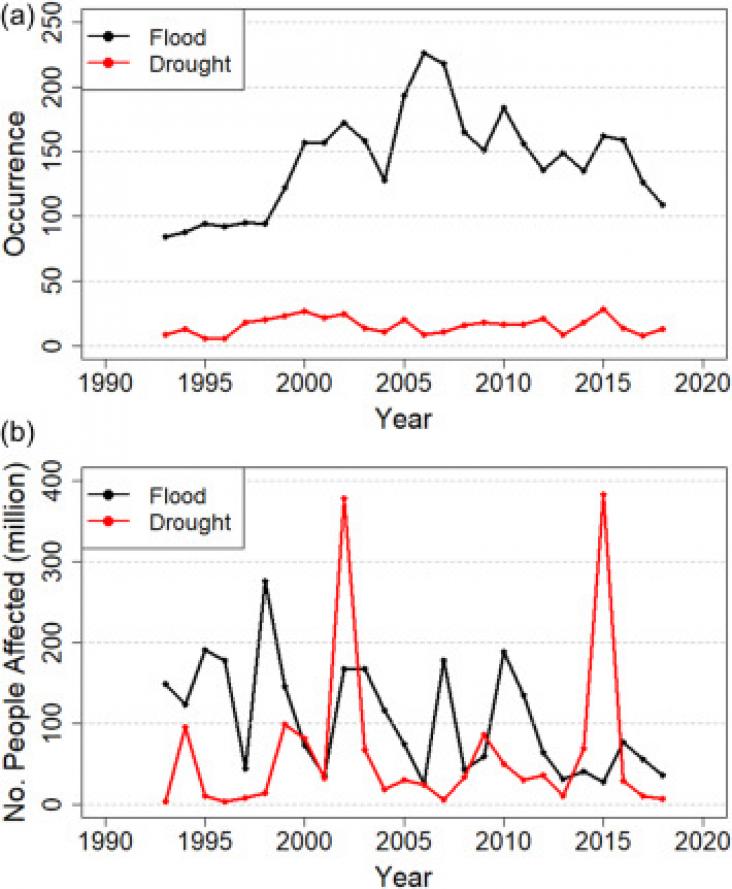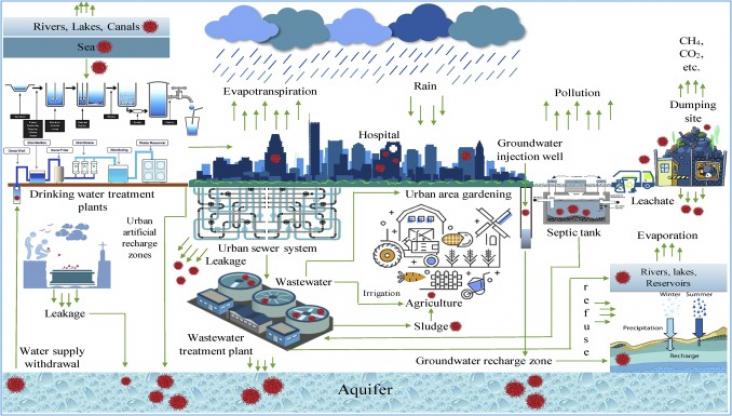
This paper examines the global trends and main health impacts of these events based on databases and case studies, identifies gaps in the Sustainable Development Goals (SDGs) indicator framework for monitoring health impacts of disasters and suggests recommendations to address these gaps.
This chapter advances SDG 6 by explaining the use of cluster analysis, multivariate statistical methods, principal component analysis, and factor analysis for the interpretation and analysis of difficult water quality data

Increased concern has recently emerged pertaining to the occurrence of severe acute respiratory syndrome coronavirus 2 (SARS-CoV-2) in aquatic environment during the current coronavirus disease 2019 (
Technology can be used to target hotspots of marine plastic pollution. The Inventory is a tool to identify plastic pollution prevention and cleanup technologies.
This chapter advances SDG 6, 12, and 13 by examining the emergence of water sustainability aspects in recent virtual water trade (VWT) literature, highlights the recent advances and remaining issues in evaluating the water sustainability of agriculture globally, and makes recommendations for future scientific research and societal change: consider groundwater both at the local scale and at the global scale; improve our understanding of groundwater storage and dynamics with new models and data; and raise the profile of groundwater sustainability in governance frameworks to eventually end environmental damages of groundwater exploitation.
This chapter advances SDG 6, 12, and 13 by explaining the Gravity Recovery and Climate Experiment (GRACE) and GRACE Follow On (GRACE-FO) missions that have greatly benefitted the modeling and monitoring of groundwater storage changes and drought at the global scale. In this chapter, we first review environmental controls on the temporal variability of groundwater using in situ data. We then describe an approach that infuses GRACE and GRACE-FO observations into a land surface model for assessing groundwater storage changes and drought globally.
Deterioration of water quality due to economic development, climate change and other factors has become a challenge to human beings and the ecosystem.
Cities are wrestling with the practical challenges of transitioning urban water services to become water sensitive; capable of enhancing liveability, sustainability, resilience and productivity in the
Elsevier,
Global Groundwater. Source, Scarcity, Sustainability, Security, and Solutions, 2021, Pages 503-517
This chapter advances SDG 6 by presenting opportunities for groundwater and how information can be shared across disciplines- e.g. Many commercial operations (e.g., oil and gas, geothermal, mining) create a wealth of geological and hydrogeological information in their everyday exploration activities that can be used by groundwater professionals.
Elsevier,
Global Groundwater. Source, Scarcity, Sustainability, Security, and Solutions, 2021, Pages 577-583
This chapter advances SDG 6 by presenting an overview and consideration for groundwater desalination, including a framework tool.
